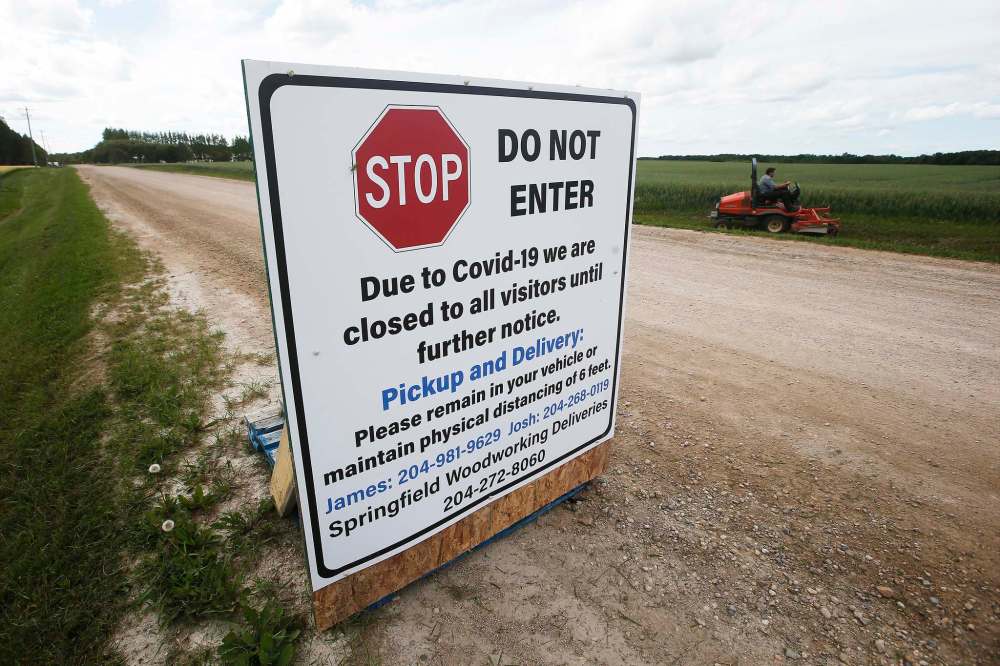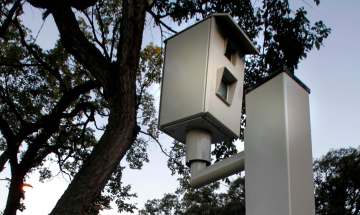Hutterites deserve respect, not stigma
Read this article for free:
or
Already have an account? Log in here »
To continue reading, please subscribe:
Monthly Digital Subscription
$0 for the first 4 weeks*
- Enjoy unlimited reading on winnipegfreepress.com
- Read the E-Edition, our digital replica newspaper
- Access News Break, our award-winning app
- Play interactive puzzles
*No charge for 4 weeks then price increases to the regular rate of $19.00 plus GST every four weeks. Offer available to new and qualified returning subscribers only. Cancel any time.
Monthly Digital Subscription
$4.75/week*
- Enjoy unlimited reading on winnipegfreepress.com
- Read the E-Edition, our digital replica newspaper
- Access News Break, our award-winning app
- Play interactive puzzles
*Billed as $19 plus GST every four weeks. Cancel any time.
To continue reading, please subscribe:
Add Free Press access to your Brandon Sun subscription for only an additional
$1 for the first 4 weeks*
*Your next subscription payment will increase by $1.00 and you will be charged $16.99 plus GST for four weeks. After four weeks, your payment will increase to $23.99 plus GST every four weeks.
Read unlimited articles for free today:
or
Already have an account? Log in here »
Hey there, time traveller!
This article was published 21/07/2020 (1969 days ago), so information in it may no longer be current.
The streak was always going to be broken. As the virus sped through areas to the south, east and west, it was naive to think that Manitoba would remain an island. Yet hope is the most tenacious of seeds, and during those 13 days this month in which there were no new cases it burst through the cracks of our caution, a strong and beautiful weed.
Still, it’s important to keep the bad news in perspective. While Manitobans watched with dismay as our active cases jumped from one to 40 in less than a week, it was easy to lose sight of the fact we are still weathering the storm better than others: a hop-skip over the border, North Dakota reported more than 600 new cases in just five days.
Meanwhile, the fact that most new cases in Manitoba are linked to Hutterite communities doesn’t reveal anything except for what we already knew: that COVID-19 is still out there, and can spread quickly in group settings. That travel, even to areas exempt from the 14-day self-isolation rule, risks bringing the virus home with us.
Really, what it comes down to is this: as Manitoba opened up, the province’s Hutterite communities did, too.
Yet the public dialogue has seized on the Hutterite angle, both as a source of reassurance (the new outbreaks are mostly limited to colonies) and frustration: on social media, some reactions were tinged with mistrust. On Monday, chief provincial public health officer Dr. Brent Roussin warned against stigmatizing communities.
This is fair. For one thing, stigma doesn’t make us safe. There are 120 Hutterite colonies in the province; only a few have COVID-19 cases. So when people took to Twitter or Facebook to announce they’d seen Hutterites at a store or gas station, the spectre of stigma bared its teeth without protecting anyone.
Still, there is some value in further discussion. To get through this pandemic, we must learn its lessons.
First, a confession: it’s difficult for me to write on this topic. Difficult because, in recent years, I’ve spent many days visiting friends on Hutterite colonies. Those memories linger in my mind as treasured vignettes, as scenes of strolls through afternoon orchards and morel hunts in green forests, always to the tune of lively conversation.
When people took to Twitter or Facebook to announce they’d seen Hutterites at a store or gas station, the spectre of stigma bared its teeth without protecting anyone.
On these visits, I learned a lot from my friends. About Hutterites, yes, but also about life, and about nature, and about the bonds of sisterhood. I borrowed books on Hutterite history, and took a twirl in my first Hutterite klad, or dress. I ached to go back.
Many outsiders who have spent meaningful time on Hutterite communities have described experiencing a similar phenomenon. A longing for something long forgotten. Hutterites are often the first to say their way of life isn’t perfect; there is beauty in it yet.
None of this makes me an expert on the Hutterian experience. But it does make me a friend, and it is in the spirit of friendship that I am now called to reflect on the effect of COVID-19. In this, I find myself feeling protective: of their privacy, of their safety, of their space to navigate this issue as a community, free from unkind eyes.
What I do know is this: at the outset of COVID-19, I spoke to a number of Hutterite folks about the response in their community. I learned how they were working hard to educate their members, and to develop new protocols to meet public health orders: everything from how they worked and worshipped to how they served dinner.
Even then, it was notable how, after their concern for the safety of their communities and the province as a whole, some folks I spoke to also worried about how an outbreak on a colony would be perceived should one occur. They winced to think about how it might play into long-simmering narratives about who they are.
“We find ourselves in the media spotlight because we could have done a better job of staying at home and be more mindful of our choices.”
– Hutterian Safety Council
“It’ll be fine,” I replied, in retrospect, naively.
One problem, I think, is that most Manitobans know little about Hutterite life. Relatively few of us get the chance to build meaningful relationships with Hutterite people. As a result, we don’t really understand who they are, how they live, or what they believe. Instead, we often resort to drawing assumptions.
This isn’t really anyone’s fault. With a sort of stubborn independence forged over hundreds of years of persecution in Europe, Hutterites have, for the most part, asked little of the wider Canadian society, except to be given space to live in peace. They give much to that wider world, in labour and charity, but seek little attention in return.
So misconceptions run rampant. One is that outsiders tend to perceive Hutterites as unchanging; the reality is quite different. In truth, the history of Hutterite life in North America is a remarkable story of intentional transformation, of a culture that gamely found ways to adapt to what it cannot control, and choose how it engages what it can.
Within Hutterite culture, these changes have never been without debate. That is another part outsiders rarely see: Hutterites are not monolithic, in act or belief. They are, rather, engaged in a vibrant and perpetual discussion about their communities and values, and how those ought to respond to the events that unfold around them.
The same is true with COVID-19. In this way, Hutterites are no exception, but rather a microcosm of the issues playing out across Canada and the United States. Some of us are cautious about the virus, some casual. Some are laissez-faire or even resistant to public health directives, others diligent and quick to embrace them.

Every community in Canada is wrangling with how to get everyone on board. For Hutterites, there’s just the added wrinkle that they are identifiable and seen as a group in ways that people in Winnipeg, for instance, are not. (If my neighbour refused to wear a mask, nobody would think it reflected on me or my values.)
But there is some light in this discussion. It is my belief that Hutterite culture is equipped with unique tools to respond to COVID-19 outbreaks. These tools include lightning-fast informal news sharing, an ability to limit people who go in or out of their communities, and leadership rooted in personal connections.
Above that, they also have the experience and the language to challenge themselves as a community. On the weekend, the Hutterian Safety Council put out a statement titled A Call for Common Sense. It shows dismay at how Hutterites broke into the headlines, but focuses its gaze firmly within.
“Presently, we find ourselves in the media spotlight because we could have done a better job of staying at home and be more mindful of our choices,” the statement read. “Please help us contain the story that we permitted to develop through our actions and apply common sense moving forward.”
One last thing. When the COVID-19 threat landed in Canada, Hutterites quickly pitched in. Women on many colonies sewed masks for donation. Some communities pivoted their manufacturing resources to make medical supplies.
When Manitobans were called on to help, Hutterites answered. Let’s not forget that.
melissa.martin@freepress.mb.ca
Our newsroom depends on a growing audience of readers to power our journalism. If you are not a paid reader, please consider becoming a subscriber.
Our newsroom depends on its audience of readers to power our journalism. Thank you for your support.













